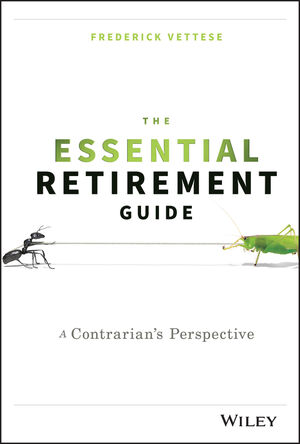Is it for the average reader? Not really. "The Essential Retirement Guide" goes far deeper into the weeds than most people need to go, or should go.
That said, Vettese does have some decent points to make. To save you the trouble of actually reading the book, let me see if I can sum them up.
- Save 7% to 10% of your income for retirement during your working years. Add more during good times.
- In choosing investments, note that there is no correlation between high fees and high returns.
- You will spend less in retirement, often a lot less.
- The often-used rule of thumb that says you will need 70% of your pre-retirement income once you retire is wrong. Most people can be content with 50% or 60% of income, Vettese says, and some could go as low as 40%. This is good news for those who haven't saved very much for retirement.
- We are living longer and you should plan for that. Check a lifespan calculator on the Internet to get an idea of how long you have left.
- Annuities are good. It's better to put your retirement savings in an annuity and guarantee yourself income for life than to try to manage the money yourself and risk running out of funds before you die, Vettese says.
- If you are managing your own money, withdrawing 5% a year in retirement is "relatively safe." That's bit more than the usual "4% rule."
- The probability of requiring long-term care is 50% for women, 40% for men. It is better to set money aside for this possibility than to pay the high premiums of long-term care insurance.
Vettese is Canadian, so the book has a bit more than you would expect on considerations for Canadian citizens. Still, he does show knowledge of things like U.S. taxes and Social Security for American readers.
-----
Please support his blog by clicking on an ad.

No comments:
Post a Comment